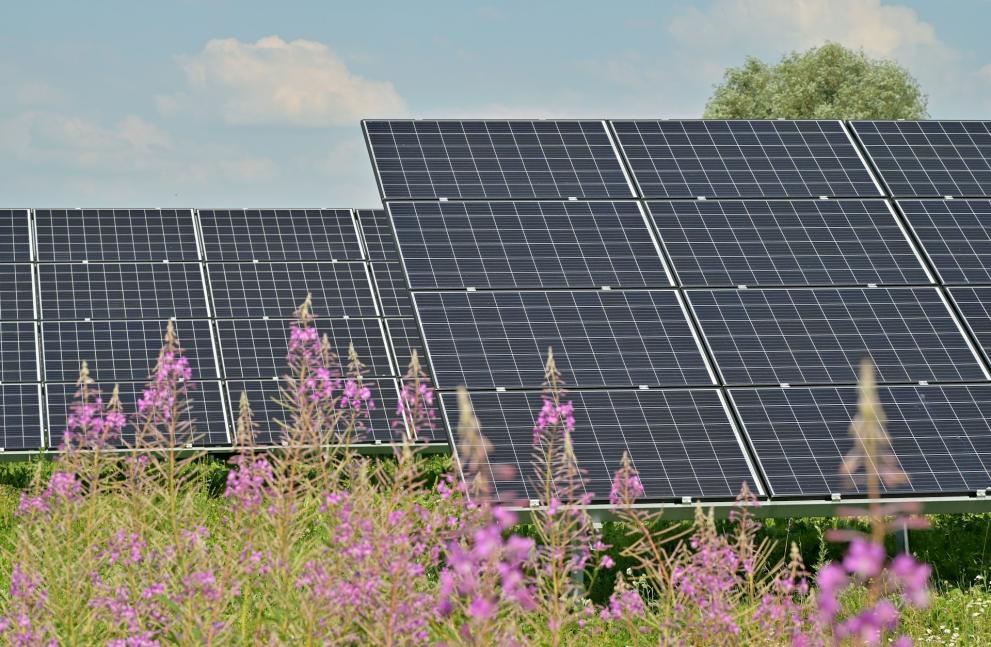
Today, the Commission has launched the European Solar Academy, the first in a series of EU Academies to be set up under the Net-Zero Industry Act (NZIA) to have in place the necessary skills along the net-zero technologies value chains. The role of NZIA academies is to develop learning content and programmes together with the industry, to ensure that sufficient skills and workforce in the value chain.
It is estimated that in the solar photovoltaic (PV) manufacturing sector alone, some 66,000 skilled workers will be needed by 2030 for the EU to meets its ambitious renewable energy targets while ensuring industrial competitiveness. The Solar Academy aims to train 100,000 workers in the solar photovoltaic value chain over the next three years to address the current labour and skills gap in the sector.
Following the successful model of the European Battery Academy, launched in 2022 for the battery value-chain, the Solar Academy will design learning content, together with the industry and relevant parties in the solar PV value chain. The Solar Academy will also develop learning credentials, which will certify the skills that people have acquired in its training courses, thus also boosting the mobility of the workforce across the Single Market. The deployment of the programmes is done via local partners. These can be Vocational and Educational Training (VET) providers, businesses, universities or other education and training providers with whom the Academy signs a contract to deliver its programmes.
The Commission is supporting the launch of the European Solar Academy with €9 million from the Single Market Programme. The project will be implemented by the European Institute for Innovation and Technology (EIT) via its Knowledge and Innovation Community, EIT Innoenergy.
This Academy is the latest Commission initiative supporting the EU's efforts to reach its ambitious targets under the European Green Deal and the REPowerEU Plan while ensuring that the industry is resilient and competitive on the global stage.
Background
Under the revised Renewable Energy Directive, the EU has a target of 43,5% for its renewable energy share by 2030, with an aspiration to reach 45%. As part of the REPowerEU plan, in May 2022 the Commission adopted an EU solar energy strategy which aims to achieve over 320 GW of solar photovoltaic capacity by 2025 and almost 600 GW by 2030.
To boost the manufacturing of net-zero technologies in Europe in support of the clean energy transition, the EU has introduced the Net-Zero Industry Act (NZIA). The objective is to create better conditions to set up net-zero projects in Europe and attract investments, with the aim that the Union's overall strategic net-zero technologies manufacturing capacity approaches or reaches at least 40% of the Union's deployment needs by 2030. Among other measures to ensure fast permitting procedures and support innovation, the Act foresees the creation of Net-Zero Academies each focusing on a specific technology, to ensure net-zero sectors are underpinned by a skilled workforce.
The academies will build on the analyses and experience of the Large-Scale Skills Partnership for onshore renewable energy, which also includes the solar sector. The partnership aims to support the exchange of best practices and data on skills gaps and skills needs in this sector, ensure that people entering the renewable energy workforce are equipped with appropriate skills, provide guidance to public authorities, promote innovation in the sector and make it more attractive to workers. This partnership is part of the EU Pact for Skills, which is a flagship action under the EU Skills Agenda. Through the Pact, 3.5 million people have received training in 2022 and 2023.
For More Information
Quote(s)
Boosting solar PV manufacturing in Europe is vital for our energy security, competitiveness and resilience. Today’s Solar Academy launch proves the Commission is committed to reducing emissions while creating quality jobs in the EU. The launch of the Academy even before the entry into force of the Net Zero Industry Act will help address the urgent skills gap in Europe’s solar PV sector - some 66,000 workers for manufacturing alone - and train a new generation of workers for our solar industry, in line with our objective to manufacture by 2030 at least 40% of our net-zero technology needs.
Thierry Breton, Commissioner for Internal Market
Solar power is at the heart of our energy transition in Europe, with the potential to create thousands of jobs across our continent, at all stages of the industrial supply chain, from design through to manufacturing, installation and maintenance. The Net Zero Academy created by the Commission will help our European workers to embrace this exciting opportunity, and offer further support to meet our ambitious REPowerEU goals.
Kadri Simson, Commissioner for Energy
Details
- Publication date
- 20 June 2024
- Author
- Representation in Luxembourg
